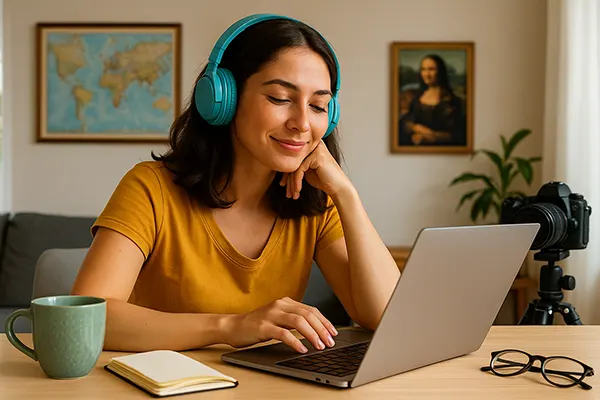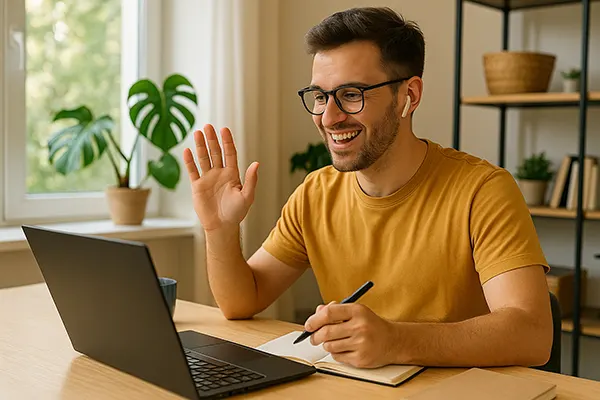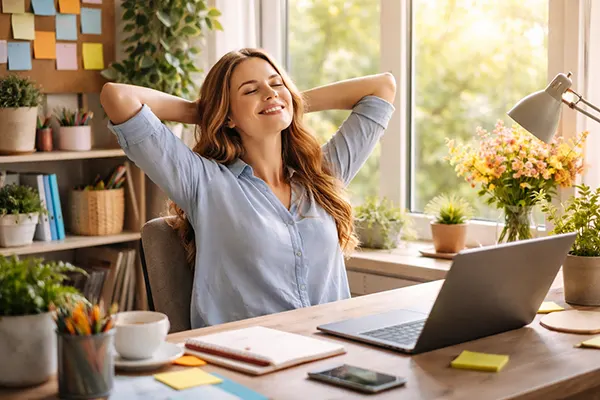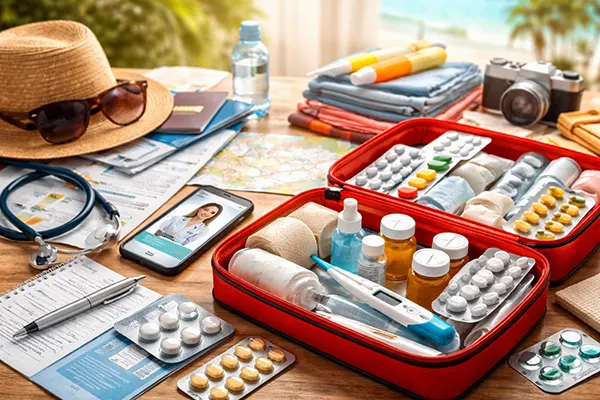
Media Inspiration Map: Resources for Women Travellers
Travel is not always about being on the move; it can also mean keeping the spirit of exploration alive from home. For many women, especially those balancing work, family, or budget constraints, digital resources offer a way to stay engaged with the world. This media inspiration map gathers podcasts, virtual museums, and travel vlogs that focus on culture, self-development, feminism in travel, and budget-friendly logistics, helping women travellers stay inspired even when they are not packing a suitcase.
Cultural Immersion Through Digital Media
Podcasts like “The Atlas Obscura Podcast” and “Women Who Travel” provide insight into destinations from unique perspectives, offering stories of heritage, art, and tradition that often go beyond mainstream travel guides. These sources combine expert commentary with authentic voices, helping listeners discover lesser-known aspects of global cultures. The conversational format makes them easy to follow during commutes or household routines.
Online museums such as the British Museum’s digital collection or the Louvre’s virtual tours allow women travellers to explore world-class exhibitions without the need for expensive flights. These platforms feature high-resolution imagery, detailed descriptions, and contextual information, making them valuable learning tools for those interested in history and art. Many museums now also offer themed tours focusing on women’s roles in art history, adding a gender perspective to the cultural narrative.
Video channels like “Expedia’s Travel Guides” and “Rick Steves’ Europe” present well-researched documentaries that can be watched at leisure. While not exclusively aimed at women, these resources include episodes highlighting female artists, historical figures, and cultural traditions shaped by women. Such content not only informs but also builds a sense of global connection.
Personal Insights and Commentary
One of the advantages of consuming cultural content online is the ability to reflect on the experiences at one’s own pace. For example, listening to a podcast about Indigenous crafts in South America might inspire a woman traveller to seek out fair-trade artisan markets on her next trip. Watching a virtual exhibition on women in Renaissance art can encourage deeper research into gender roles in historical contexts.
These resources also create opportunities to engage in online discussions and community forums, where women share interpretations and personal experiences related to the cultural content they consume. This exchange often leads to richer understanding and new travel ideas.
In 2025, with the growth of interactive media, more institutions are introducing live-streamed events and Q&A sessions with curators or creators. This development allows women travellers to interact directly with experts, making the cultural experience more personalised and dynamic.
Self-Development Resources for Aspiring Travellers
Podcasts like “She Explores” and “The Thoughtful Travel Podcast” provide guidance on building confidence, managing travel anxieties, and pursuing meaningful journeys. These shows often feature interviews with experienced female travellers, psychologists, and coaches who discuss topics such as solo travel safety, sustainable travel choices, and career breaks for exploration. The advice is practical, actionable, and grounded in real-life experiences.
Webinars and online workshops on language learning, photography, and storytelling offer skills that enhance travel experiences. Platforms like Coursera and MasterClass host courses led by renowned experts, enabling women to improve their abilities before setting foot abroad. This preparation not only boosts confidence but also opens new opportunities for connecting with people and cultures during future trips.
Many travel bloggers now integrate mental wellness into their content. They discuss the psychological benefits of travel, ways to cope with reverse culture shock, and strategies for maintaining motivation when travel is not immediately possible. These insights encourage personal growth while keeping travel aspirations alive.
Commentary on Self-Development Trends
One noticeable shift in 2025 is the increased focus on hybrid content, blending personal development with travel inspiration. For instance, a course on storytelling might include assignments involving local exploration, encouraging women to practise their skills in familiar surroundings before taking them abroad.
There is also a rise in mentorship programmes connecting experienced female travellers with those who are just starting out. These mentorships often happen online, allowing for global connections that might lead to future travel partnerships. Such relationships foster confidence and a supportive network.
Additionally, the growing number of women-led digital communities dedicated to skill-building ensures that self-development resources remain inclusive and diverse. These spaces are often moderated to promote respectful dialogue and practical advice, making them a reliable source of encouragement.

Feminism in Travel and Budget-Friendly Logistics
Vlogs like “Travel Women” and “Her Packing List” address gender-specific travel topics, from navigating cultural norms to finding safe accommodation. They also share practical packing strategies tailored to different climates and activities, often with a focus on minimalist and budget-friendly approaches. These channels serve as both educational tools and sources of empowerment.
Budget travel podcasts such as “Zero to Travel” and “Budget Minded Traveller” provide detailed tips on saving money without compromising the travel experience. Episodes cover topics like flight deal strategies, cost-effective transport options, and budget accommodation platforms that prioritise safety for solo female travellers.
Digital tools, including fare trackers, ride-sharing apps, and hostel review platforms, are increasingly incorporating safety ratings and features specifically for women. This integration allows female travellers to make informed choices, balancing affordability with personal security. These resources are now a vital part of the planning process for many women.
Observations on Feminist and Budget Travel Media
The intersection of feminism and budget travel media has strengthened in recent years. Many creators emphasise the importance of financial independence as a key factor in enabling women to travel on their own terms. This perspective shapes the advice given in blogs, podcasts, and videos, encouraging women to prioritise autonomy and self-reliance.
Some platforms now collaborate with NGOs and advocacy groups to highlight gender equality issues within the travel industry. These collaborations bring attention to challenges such as wage disparities among female tour guides or the underrepresentation of women in leadership roles in tourism.
Ultimately, the blend of feminist awareness and practical budget strategies helps women travellers navigate the world with both confidence and resourcefulness. By using these media resources, they can plan journeys that are safe, affordable, and aligned with their values.




